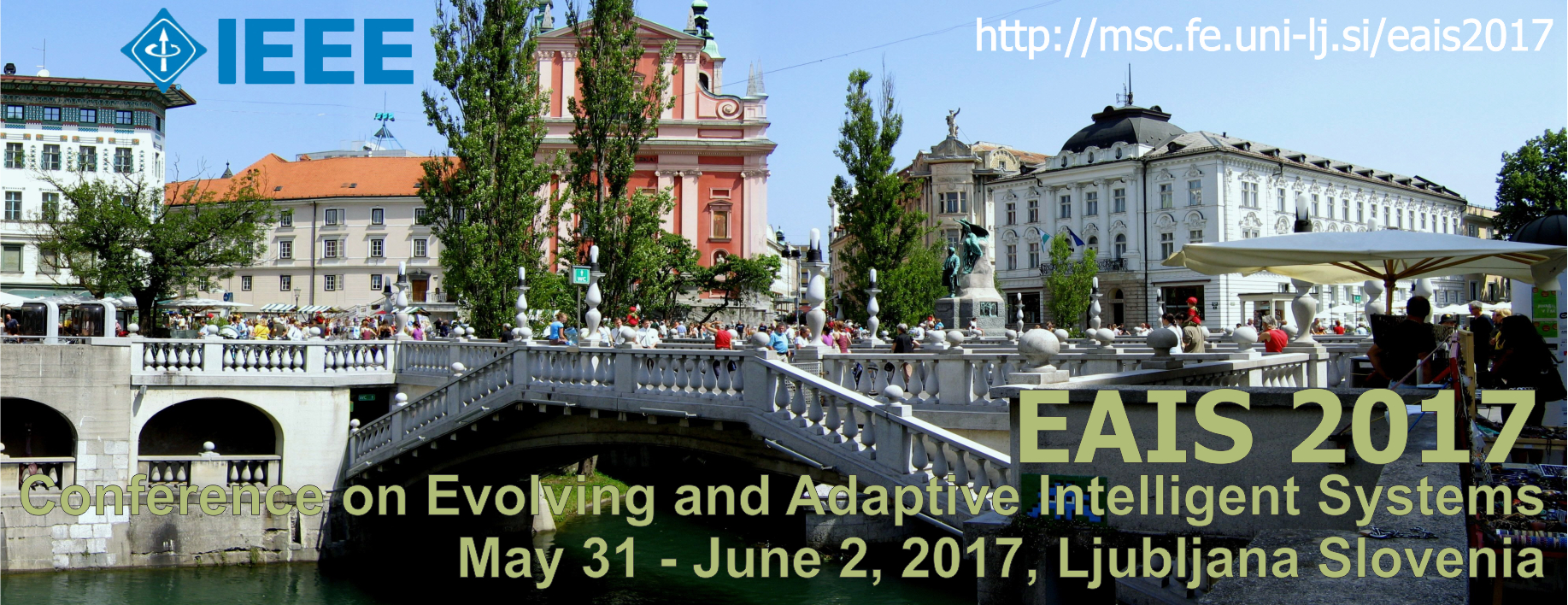Fernando Gomide
Evolving Granular Modeling and Control
Prof. Fernando Gomide
University of Campinas
School of Electrical and Computer Engineering
Campinas, São Paulo,
Brazil
Email: gomide@dca.fee.unicamp.br
http://www.dca.fee.unicamp.br/~gomide/

Evolving Granular Modeling and Control
A granule is a collection of points assembled by indistinguishability, proximity or functionality. Granular computing is a computational intelligence paradigm based on a theory of granularity. The purpose of granular computing is to develop information, classification, process modeling and control systems using granular data. Theory of granularity is a means to develop simple theories out of more complex ones. A theory of granularity must say something about how various local theories articulate with each other. When shifts in perspective are required, when we must translate the problem from one local theory to another, articulation of axioms are used. An adaptive system is a set of interacting entities forming an integrated whole that together are able to respond to environmental changes or changes in the interacting parts. Online adaptive modeling and control approaches must be capable to cope with short-term adaptation and long-term survivability. This is a challenge for classic adaptive system theory and methodology. Evolving systems are highly adaptive systems capable to simultaneously develop the structure and the system parameters using incremental learning. Evolving systems emerges a systematic approach to deal with the stability–plasticity trade-off to guarantee at short-term adaptation and long-term survivability via gradual development. Evolving granular computation enlarges the scope of granular computing and evolving systems introducing mechanisms, methods and approaches to handle granular stream data and models. The aim of the talk is to introduce the idea of adaptive granular computation and to illustrate its potential in systems modeling.
Memberships:
IEEE Fellow Class 2016, IFSA Fellow Class 2009, NAFIPS K. S. Fu Award 2011, Past Associate editor IEEE Transactions on Fuzzy Systems , IEEE Transactions on Systems, Man, and Cybernetics-Part A , IEEE Transactions on Systems, Man, and Cybernetics-Part B. Currently serves the editorial board Fuzzy Sets and Systems and the International Journal of Uncertainty, Fuzziness and Knowledge-Based Systems, is associate editor of Fuzzy Optimization and Decision Making, Soft computing, Evolving Systems, Granular Computation, and is member of IPC FUZZ-IEEE, EAIS, EALS, SSCI, SMC, WCCI, NAFIPS, IFSA, EUSFLAT, IEEE Task Force Evolving and Adaptive Fuzzy systems, IEEE Task Force Evolutionary Fuzzy Systems, IEEE Emergent Technologies Technical Committee. Past Vice-President and Secretary of IFSA, and member of NAFIPS board.
Research interests:
Fuzzy set and systems theory, neural and evolutionary computation, system modeling, control and optimization, granular computing, decision-making systems, transportation and logistics, applications.
Short bio:
Prof. Fernando Gomide received B.S. degree in electrical engineering from Polytechnic Institute of the Pontifical Catholic University of Minas Gerais, Belo Horizonte, Minas Gerais, Brazil in 1975, M.S.E.E. degree from the University of Campinas, School of Electrical and Computer Engineering, Campinas, Sao Paulo, in 1979, and Ph.D. degree in systems engineering from Case Western Reserve University, Cleveland, Ohio, USA in 1983. He is professor of the Department of Computer Engineering and Automation, School of Electrical and Computer Engineering, University of Campinas since 1983. Research fellow 1-A of CNPq, Brazilian National Council for Scientific and Technological Development. Prof. Gomide has co-authored several books including “An Introduction to Fuzzy Sets” (MIT Press) and “Fuzzy Systems Engineering” (IEEE/Wiley Interscience), in addition to several IEEE conferences and transactions papers.


